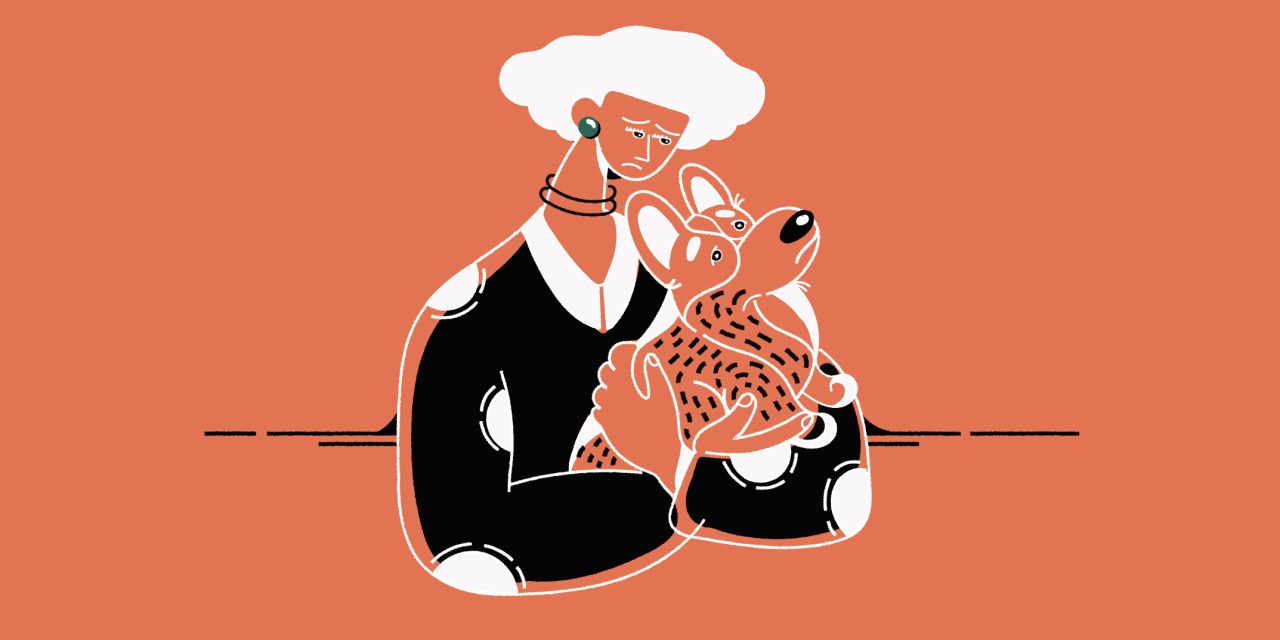‘Pet anxiety is real’: More employers willing to allow pandemic-pets when staff return to the office

Pet adoption has exploded during the pandemic. But now, new cat and dog parents are concerned about separating from their furry loved ones when they return to the office.
Last October, Rover reported that one-third of 1,000 Americans surveyed had welcomed a dog or cat into their homes since the coronavirus emerged last year. More recently, the pet-care site found that 40% of 1,000 pet owners were worried about their pets’ own anxiety once a more normal work routine resumes.
“Pet anxiety is real, and we also have anxiety about separating from our pets,” said Paul Guyardo, president and CEO of the pet insurer Petplan, which covers consultations with veterinarians to diagnose and treat separation anxiety as well as medication and various types of therapies aimed at calming the nerves of fur babies.
Not everyone will have to separate from their four-legged loved ones though. More and more employers, acknowledging the role pets play in the happiness and mental well-being of their employees, are considering creating pet-friendly offices. Banfield Pet Hospital in Vancouver, Washington, ran a survey which found that half of 500 C-suite executives would allow pets upon the return to the physical workspace, while 59% said they would allow more flexibility for workers who want to remain remote because of their pets.
At Petplan, pets in the workplace are a given. So are rules with the return to the office, like a maximum number of pets allowed, social distancing (for employees and pets), and certain days for cats versus dogs. “Companies should be responsible and set guidelines,” said Guyardo.
Guyardo leads a team of about 200 employees, 86% of whom are millennials — a generation that is especially devoted to its pets, with 76% of the group owning animals, according to a Banfield study which surveyed 1,500 pet owners. A total 42% of the millennials in the study plan to hire a dog walker, take their pet to daycare or do some combination once they return to the workplace. For pet owners who wish to bring their pets to the office, 38% are worried their pet will experience separation anxiety. One in three millennials say they will consider looking for another job post-pandemic if their workplace is not pet friendly, per the same report.
While companies like Petplan have always welcomed pets, others are doing so as a direct result of the pandemic.
Many employees of the software company WeInvoice adopted pets over the past year. “We felt that allowing pets [back to the office] would be the best way to ensure productivity isn’t compromised due to the risk of pet separation anxiety,” said founder Eden Cheng. “We also recognized that pets help create a healthy and positive work-life balance, boost customer perception, and also help lower employee turnover in the long term.”
Like Guyardo, Cheng has laid down a number of rules, requiring vaccinations, liability insurance and training, as well as keeping pets confined to a special space in the office to ensure “no one feels forced into this new workplace culture.”
Milo — a kitty whose dad, Norman Guadagno, is CMO at the marketing technology company Acoustic — has, like many other pets, become somewhat of a star during the pandemic, making regular appearances on Zoom calls. “Maybe we are all codependent, but I know that returning to an office, even part-time, will likely cause stress for Milo and me,” Guadagno said.
Acoustic is still formulating its back-to-the-office policy — including its position on pets. (Guadagno said Milo is lobbying for a “cats only” policy.) But that doesn’t mean pets aren’t part of the corporate culture — Acoustic even maintains a Slack channel dedicated to employees’ critters (Digiday Media does as well).
“Having dogs in an office enables people to interact in a relaxed and friendly way,” said Dr. Darcia Kostiuk, a veterinarian with the petfood brands Orijen and Acana, who said taking her own dogs to work supports her mental and physical well-being.
“The good news is the human-animal bond is resilient and it has only strengthened during the pandemic,” she added. “You can find comfort in that strong bond and know pets will adapt gradually.”
Kostiuk has the following advice for employees who will be forced to separate from their pets during the workday:
A slow transition into new routines is best: Prepare pets by mimicking the new routine ahead of time. For example, leaving the house earlier than usual or gradually increasing the amount of time pets are left alone.
Don’t succumb to overemotional hellos or goodbyes: Pets will pick up on it. Calm greetings and departures are always best. To help with goodbyes, have a toy or treat ready several minutes ahead of time to distract them when you are leaving for extended periods of time.
Maintain an exercise routine: Daily walks or playtimes may be a little shorter or occur at different times, but exercise contributes to physical and mental health, for both pets and their owners. Most cats prefer short bursts of play, so they likely won’t mind if their play times start occurring at different times of the day.
Explore pet day cares or dog walkers. The extra activity will alleviate some of their stress due to a pet parent being around less often, and the exercise will benefit their overall health. Or, get creative and explore a neighborhood initiative where pets alone at home can be cared for by neighbors.
